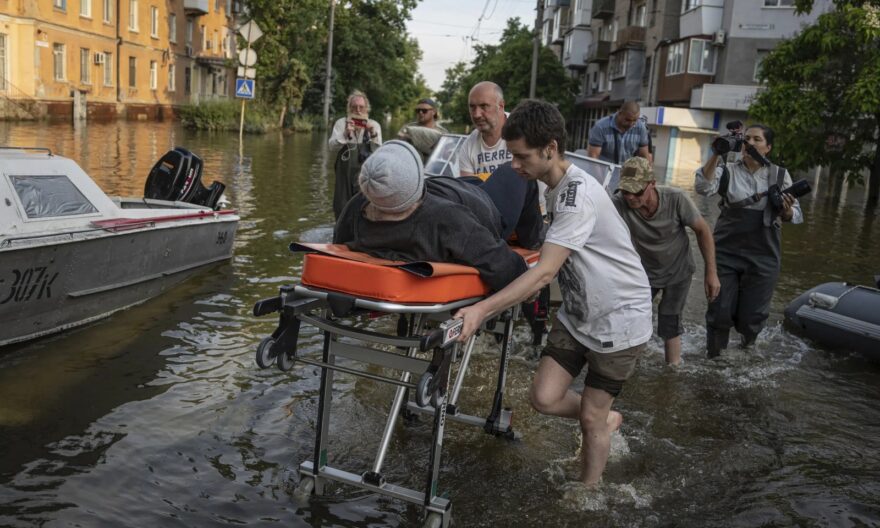
The United Nations has criticized Moscow for reportedly preventing its aid workers from accessing the areas affected by the recent collapse of the Kakhovka Dam in southern Ukraine, which has led to stranded residents, power supply concerns, and an environmental crisis amid an ongoing conflict that has lasted for 16 months.
Denise Brown, the U.N. Humanitarian Coordinator for Ukraine, issued a statement on June 18 stating that the organization had been in contact with both Moscow and Kyiv, as they each control parts of the southern Kherson region where the dam and reservoir are situated. The U.N. urged them to address the significant damage caused by the dam breach and to provide assistance to mitigate the consequences.
The Russian Government “has so far declined our request to access the areas under its temporary military control”, according to statements by Denise Brown, the U.N. Humanitarian Coordinator for Ukraine.
In addition, she said, “We urge the Russian authorities to act in accordance with their obligations under International Humanitarian Law”.
Information obtained by sources, along with exclusive drone photos, suggest that Russia had the capability, motivation, and opportunity to cause the explosion that resulted in the dam’s collapse. The dam was under Russian control at the time.
The explosion coincided with Ukraine’s mobilization of a counteroffensive. Recently, Kyiv’s forces have escalated their attacks along the 1,000-kilometer (600-mile) front line.
The Kakhovka Dam is situated on the Dnieper River, which serves as the dividing line between Russian and Ukrainian forces on the Eastern and Western banks respectively. Some experts believe that the dam breach was an intentional act by Russia to impede Ukraine’s counteroffensive in the Kherson region.
According to the U.K. Defense Ministry, Russia recently relocated several thousand troops from the Dnieper riverbanks to reinforce their positions in the Zaporizhzhia and Bakhmut sectors, where heavy fighting has reportedly taken place. In a tweet, the ministry stated that this move “likely reflects Russia’s perception that a major Ukrainian attack across the Dnieper is now less likely”.
According to Ukrainian Deputy Defense Minister Hanna Maliar, Ukrainian forces have successfully recaptured eight settlements in the southeastern region of the country over a two-week period. The counteroffensive, conducted along the Berdyansk and Melitopol axes, has resulted in Ukrainian forces advancing up to seven kilometers (four miles) into areas previously under Russian control.
On June 19, Ukraine’s Air Force reported that Russia had launched an attack on southern and southeast Ukraine using cruise missiles and self-exploding drones. Ukraine claimed to have shot down four Kalibr missiles and four Iranian-made Shahed drones during the attack. The targeted areas included the southern province of Odessa and the southeastern Dnipropetrovsk region. However, there were no immediate reports of casualties or damage, and it was not possible to independently verify the claims made by either side.




